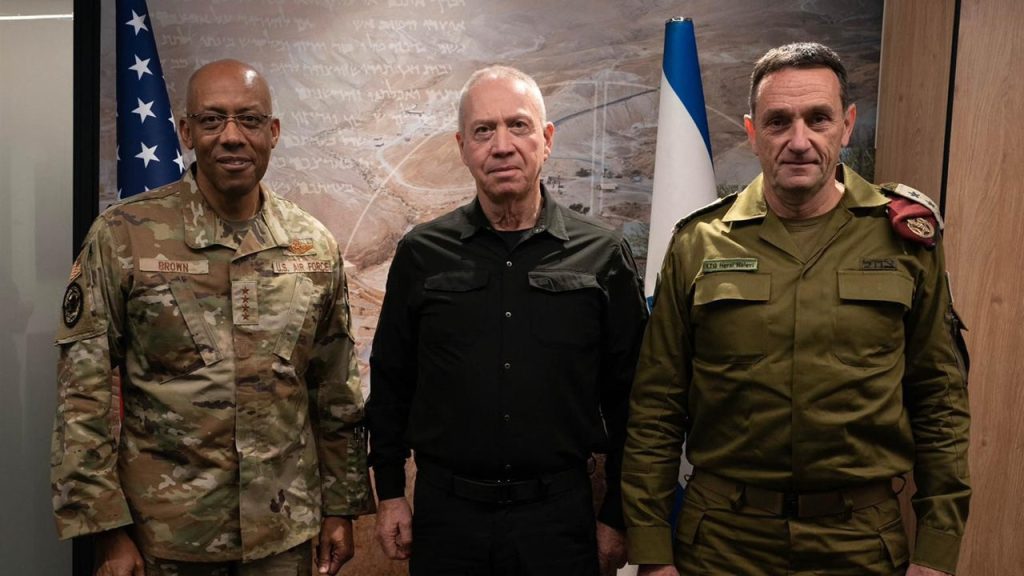In a meeting on Monday with U.S. Chairman of the Joint Chiefs of Staff Gen. Charles Q. Brown, Israel’s Defense Minister Yoav Gallant expressed concerns about Iran’s increasing aggression, particularly in relation to the ongoing conflict with Hamas in Gaza and threats from Hezbollah in the north. Gallant emphasized the need for collaborative efforts to develop groundbreaking capabilities in response to these threats. The meeting also involved Israel Defense Forces (IDF) Chief of Staff Lt. Gen. Herzi Halevi, and discussed Israel’s primary objectives in the war, including dismantling Hamas and ensuring the return of hostages taken by the terrorist group.
Efforts by the U.S., Egypt, and Qatar to broker a cease-fire deal with Hamas have so far been unsuccessful, as Hamas continues to demand the withdrawal of Israeli forces from Gaza as a condition for any agreement. The situation in Gaza remains dire, with thousands of Palestinians and Israelis reported killed since the conflict began on October 7. Despite the focus on Gaza, some security officials argue that the biggest threat Israel faces is from Hezbollah in the north, with ongoing missile and drone exchanges.
The meeting between Brown and Gallant took place following an exchange of fire between Israel and Hezbollah, amid concerns of a broader war in the region. Hezbollah launched rockets and drones at Israeli military positions, prompting Israel to respond with warplanes targeting Hezbollah strongholds in Lebanon. The exchange resulted in casualties on both sides, but reports suggested that the limited scope of the conflict may have eased concerns of a wider war in the Middle East. However, the Chief of Staff of the Iranian Armed Forces, Major General Mohammad Bagheri, warned that revenge against Israel is inevitable.
Despite the ongoing conflict with Hezbollah, progress continues in the ceasefire talks with Hamas. White House National Security Communications Advisor John Kirby stated that the talks remain constructive, despite the recent violence. Kirby emphasized the urgency in securing a ceasefire, as efforts to reach a deal continue on the ground. While the exchange of fire with Hezbollah has not impacted the negotiations with Hamas, the region remains on edge as threats and provocations persist.
Overall, the situation in the Middle East remains tense, with Israel facing threats from both Hamas and Hezbollah, both supported by Iran. The ongoing conflict and violence highlight the need for continued diplomatic efforts to reach a ceasefire and prevent further escalation. The involvement of key players like the U.S. in brokering deals and addressing security concerns is crucial in managing the complex dynamics in the region. As the region navigates the challenges posed by militant groups and state actors, cooperation and collaboration are essential in maintaining stability and security in the Middle East.













